
This interview is the final in our series from Sundance Film Festival chronicling the best of indie film for the upcoming year.
The first time we meet Hannah Pearl Utt and Jen Tullock, the pair are snuggled up in a pile together on a couch, their eyes closed, relaxing in each other’s warmth.
Their tender relationship shows in everything the longtime friends do together, foremost the new family comedy Before You Know It. A product of the Sundance Labs at the Sundance Institute, the pair wrote the script and star together under Utt’s direction. Alec Baldwin, Mandy Patinkin and Judith Light also star in the comedy about a pair of sisters–one straight, one gay–as they race to save their family theatre from foreclosure. Along the way, the two uncover some startling revelations about their family history as Rachel (played by Utt), tries to build a relationship with a beautiful young woman.
Queerty spoke with Utt & Tollock not long after the world premiere of the film.
How about we take this to the next level?
Our newsletter is like a refreshing cocktail (or mocktail) of LGBTQ+ entertainment and pop culture, served up with a side of eye-candy.
Congratulations on the film. It was joyous. And I know the two of you, and your film, are also a product of Sundance. Because you wrote together, where does this begin for you? Was this in the lab?
HPU: It begins in Brooklyn.
JT: It begins in Brooklyn in 2008. We’ve been friends for a long time. We’ve known each other for a decade. And we were friends before we were collaborators, and our friendship has definitely informed our collaboration. But when we both met, we were both performers but also creators.
You were finishing your degree and writing and creating things. I was writing and creating things. But we had never attempted anything at this level. So we started writing a version of this script all those years ago.
HPU: We were little babies like, Let’s make a movie.
[Laughter]
JT: Yeah. We can do anything! Which is just like glaring privilege and also just insanity.
HPU: And youth.
JT: And youth. The buoyancy of youth.
HPU: So we used it as an excuse to become closer.
JT: To become closer, share a laptop and to share a lot of tequila.
[Laughter]
JT: I need to come up with a better metaphor because this one is getting tired. But we would come back to it like a crossword or a needlepoint. Because since we started writing it, we made a short that was here at the festival in 2016, Partners. We made Disengaged. And we collabed on a couple of other, smaller things. But it took that long and those things to sort of figure out what our dynamic would be, what the best version of that dynamic would be. Do you want to explain what that is?
HPU: Yeah, um…
[Laughter]
JT: My husband speaks for me.

HPU: Well we like to think of ourselves as co-parents to our worlds. The kids, at a certain point, come to live with me [as director]. So basically, since I started directing our shared work, the way we do it is we’ll figure out the characters and the world together. We’ll break the story, then I’ll take the lead on structure, writing the first pass.
JT: Yeah.
HPU: Then we edit together, Jen punches up, things change on set, and yeah, that’s kind of the deal for the way we work together. We have other collaborations that work differently…
Sure, yeah.
JT: But I really love this one. And to be honest, we’ve even expressed this in other interviews—there’s a real, relaxed sensibility that comes from knowing exactly what is expected of each of us. It completely obliterates any sense of competition, of confusion, or of insecurity, because I know what I bring to the table. She knows what she brings to the table. We figured out early on where certain parameters were.
Related: Jake Gyllenhaal goes gay again in ‘Velvet’ and 7 other queer Sundance flicks 2019
HPU: It’s been a journey. And figuring that out was a big part of figuring out what this movie was.
I was going to ask because I’ve interviewed married couples that have worked together, longtime friends, how do you find that trust? Some friends can’t work together because their styles conflict too much.
JT: I think we’re each other’s biggest fan. It’s really that simple. We have a deep love for each other. I mean, she is my family. Oooh, I’m going to cry…
HPU: Aw!
[Hannah strokes Jen’s back. Jen wipes the corners of her eyes]
JT: And has been for a very long time. So that’s informed, not just creating the dynamic of playing sisters in this movie, but I trust her 100%. I also know, and we’ve proven this to one another on set and off, that our safety and autonomy as human beings will always be valued over any product. When you’re in that environment, I think, it’s impossible not to have the freedom to explore and be your best self.
Related: PHOTO: Chelsea Clinton, Judith Light At TAG Research In Action Awards
HPU: Communication as well. It’s been a process of figuring out how to express our needs and support each other while giving each other space. We just really believe in each other. Jen’s my favorite actor.
JT: She’s my favorite director.
HPU: I want her to star in everything.
JT: I want to star in everything.
[Laughter]
HPU: So this gets us one step closer.
You use a lot of long takes that track through the house. There’s always a lot of business going on in the background, which is sometimes hysterical. With that in mind, do you rehearse your actors? How does that shape your style and performances?
HPU: I think rehearsal is so important. We didn’t have as much rehearsal time as I would have liked, which is just the nature of this. I do try to spend a lot of time with the actors and get them together, especially those that have relationships in the movie so that everyone is very clear on what their point of view is, and what their history is. Then I get to work with really great actors, and they’re so smart about their own characters, and they have such strong bullsh*t detectors.
[Laughter]
HPU: If I want them to go somewhere that doesn’t feel right, they’re going to tell me, and they’re going to tell me where they want to go. Or, I have to give them a reason to go there. My director of photography [Jon Keng] was also really lovely about accommodating that. There has to be a certain level of flexibility, which is also why the entire house was dressed, top to toe. The entire house was lit. We tried to create as much reason for the actors as possible to behave and capture the behavior. I did grow up doing a lot of theatre, but a lot of my favorite filmmakers are like that.
It’s a tremendous amount of pressure to put yourself under when you’re directing yourself in a lead role, and you’re doing this on a tight schedule, a tight budget. How do you cope with the pressure? How does that affect your performance?
HPU: It was definitely stressful for some of those oners [long, single shots], like that opening shot. There are some really important scenes we decided to do in oners, which is risky. But, I felt I had the trust of my actor. I kind of know I can pull that off with Jen no matter what. I can usually rise to the level of wherever she’s at. And sometimes the pressure is really good. But sometimes those “live performance” stakes are what creates magic and keeps people uber-present. Not just the actors, but the crew as well. That kind of energy is something, I think, that translates.

Alec Baldwin, Judith Light, Mandy Patinkin. One thing I love about their casting is that you let them have some fun with their public images. Mandy’s theatrical background, Judith’s background in soap operas. Alec, we love, but has had some anger issues in the past.
[Laughter]
JT: I never thought about that! I’ll be honest with you. I mean the soap one is the most obvious, and Mandy, yes of course, we know him from his years of Sondheim revelry. I hadn’t put together any of the other stuff.
HPU: It’s an odd story. It’s an odd world we’ve created. We’re two people who sort of grew up outside of the norm. It took other people reading the script and talking about it to realize that our point of view was a bit odd.
JT: And perhaps even our point of view is antiquated. But, the worlds we were interested in spoke to a larger audience than just our peers. I hope, anyway.
Sure. Judith was part of the Sundance lab as well. Were you nervous about going to Mandy or Alec?
JT: No. Alec….
HPU: Alec’s been attached for a while. He was just supportive of Mallory Schwartz, our producer, and to Jen and me and the film. But he signed on and it changed the film. He loved the part. He stayed connected to it over the years because he just really believed in us and the project. What I was going to say about the strangeness of the script: In order to connect to it, I think everyone had a very specific persona, emotional connection to the script if they had a connection at all.
HPU: Not just that, but I wanted their input in developing my characters. We wanted to know how to make these characters richer, fuller. We get to build a quilt of all our different experiences.
That shows in Judith’s performance. She probably has the most sizable role. And she’s a hell of an actress, so thank you for giving her a good film role.
HPU: Do you want to talk about working with her in the lab?
JT: Yeah, so these labs…I can’t say enough about them. They’re just a collection of angels. But the casting director [Rori Bergman] gave Hannah a list of names for the actors. Hannah said, “Oh my God, Judith Light.” Judith comes in, and the connection was instant. She’s one of the kindest, most generous, hardest working artists I’ve ever met in my life, if not the. She was so invested in the story that it became immediately apparent to both of us—more importantly, to Hannah—that there was no one else who could play the role.
JT: We were at a point when we got to the labs with the script where I don’t think we had the most humane understanding of her character. I think it’s really easy to judge her early on because of the decisions that she’s made. As such, she was one of the more nebulous of the main characters. Once Judith stepped into her shoes, and breathed such empathy and humanity into her, we were like, Oh, that’s who she is.
HPU: Yeah, she’s a person stuck at age 16. She’s a person stuck at the time of her greatest drama.

At its core, this is a queer story, but it’s more a story about absent parents. It’s about looking for somebody that’s not there, feeling abandoned, and sort of repeating that.
JT: Even if they’re physically there.
With Rachel’s character, it obviously stunts her in some very funny ways. Fortunately, you make them funny. In your own personal background for the two of you, where does that come from? It’s one thing I encounter with a lot of the people I interview—absent parents.
HPU: Interesting. I think a big part of our individual work–
[She turns to Jen]
HPU: You could explain this better. For me, I’m interested in responsibility: The responsibility that I have to myself, and to others, and how that plays into decisions we all make. I’m really torn between believing what Rachel says, “Parents are responsible for their children.” I do believe that, but not all parents have the luxury of taking full responsibility for their children. That’s its own kind of privilege. Also, every person is responsible for themselves. I believe that 100% as well. And not all people have the privilege of taking responsibility for themselves, I want to make sure that’s clear.
Absolutely.
HPU: So that’s been part of my process and understanding my relationship to my family, and family in general.
JT: For me, it’s been a generational issue in my family. The idea that a lot of people of my parents’ generation have is that children are a product of their parents, and as such are an extension of them, versus, for lack of a better term, the Millennial idea which is I’m allowed to stand shoulder to shoulder with you with love and respect. But, if there is an energy between us that is detrimental to my autonomy, I’m allowed to disconnect. It doesn’t necessarily mean disconnecting a relationship, but I owe it to myself to call that out. We both love our families very much, but a lot of what we have experienced with them respectively has informed much of our lives. And we like to talk about it
I think that’s something a lot of queer people can identify with. We love our families, but there are certain tensions there, fractures that maybe have healed, but there are scars.
JT: Yes! As a gay woman, a queer woman, and Hannah is also a member of the queer family, I have been so sick and tired of seeing the devastating—the lesbian character or queer female character either has to be nefarious or tragic. She either has some tragic flaw that makes her disgusting to us, or she has to die. Or the nucleus of her pain is her queerness. We knew going into this that Rachel was queer, that it made the most sense for her character. But that’s just part of the landscape of this world. The discord in her family has nothing to do with her queerness.
HPU: They’re all too narcissistic to care about her queerness.
Sure.
JT: You look at, by and large, the heteronoromative narratives that we see in film, and of course when it’s people of the opposite gender in a love story, we don’t expect a sense of discord. But when you see queer love stories, unfortunately, I think we still wonder, Where is this going to go? Will this be about coming out? Will one cheat on the other with a man? All those terrible tropes that we’re trying to dismantle; the irony, I think for me, is that the way to dismantle them is to normalize them.
The Rachel-Celia relationship is something so good because it’s something we can all identify with. It’s like, there’s something here. Let’s see where it goes after we deal with all this first.
HPU: I’m not ready to show you myself, I’m not ready to take you inside because it’s embarrassing, and rather than be honest, I’m going to avoid it.
What, for the two of you, are your ambitions? Writing? Directing? Acting?
JT: We want to do exactly what we did on this movie. Hannah’s a writer/director that happens to be an amazing actress, which is kind of crazy that she got all three in here gene pool. I’m going to speak for you [Hannah], so correct me if I’m wrong. But her passion, and where I see her emerging is as a writer/director, and I’m sure she’ll continue to act.
HPU: Yeah. I’m definitely moving into more directing and writing for myself. But directing’s the thing, and everything else is in service to that. And I’d like for Jen to be in everything I direct.
JT: I’m the same way with acting. I’m an actor, that’s what I am. The other stuff came to fruition in services of creating work for myself.
HPU: And we’re going to make another movie next year.
JT: Yeah.
What can you tell us about it?
HPU: It will also star and concern queer people through the whole movie. But it’s a universal story. I don’t know if I can tell you much else.
JT: We’ll let it be mysterious. Hannah’s writing and directing, and I’ll hopefully be in it.
HPU: The plan is to have it ready for next Sundance.
Don't forget to share:







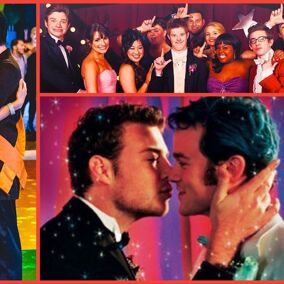
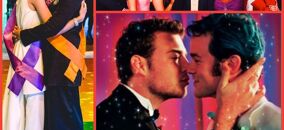
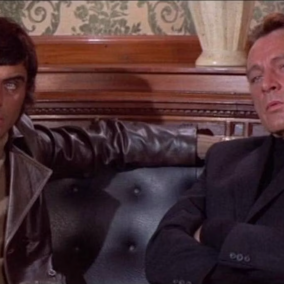
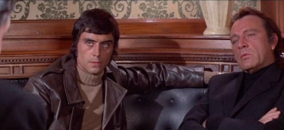
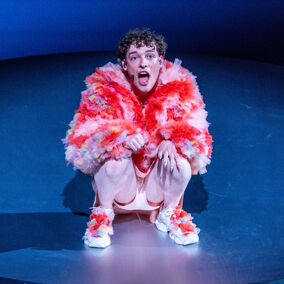
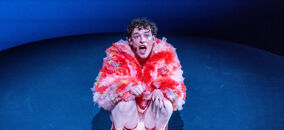
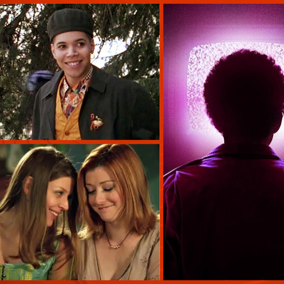
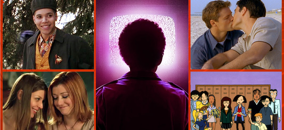
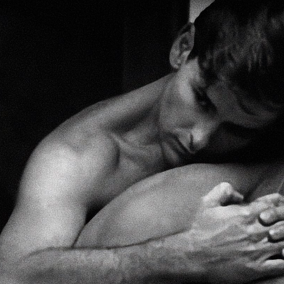
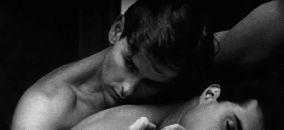
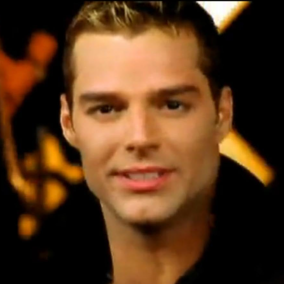
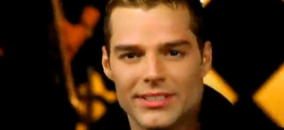
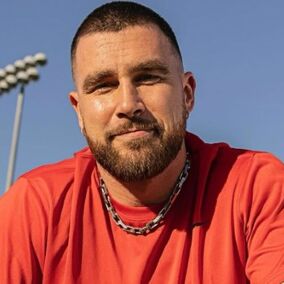
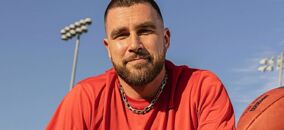
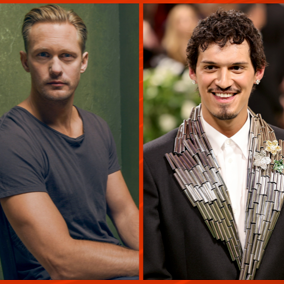
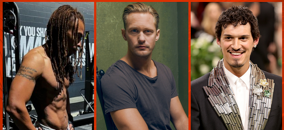
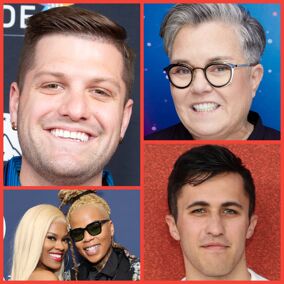
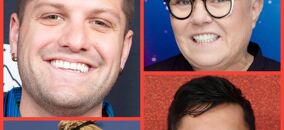
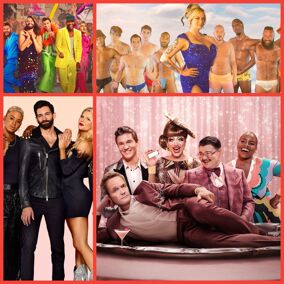
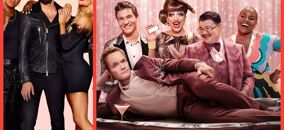
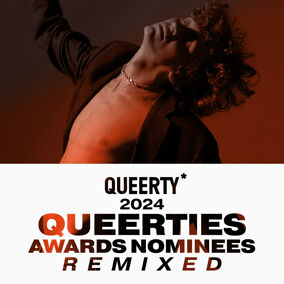
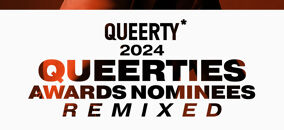


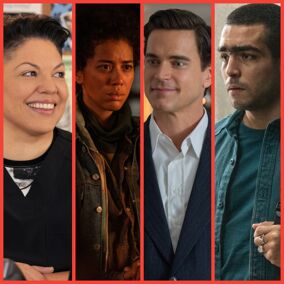
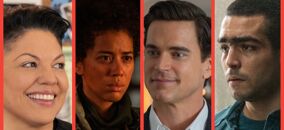
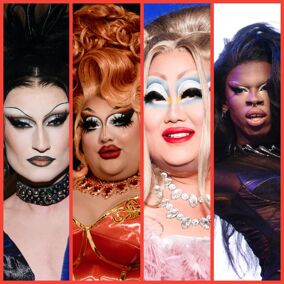
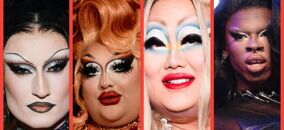
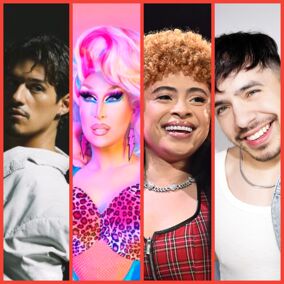

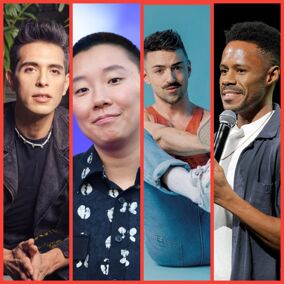

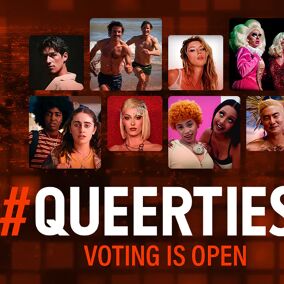
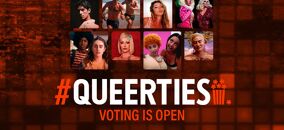
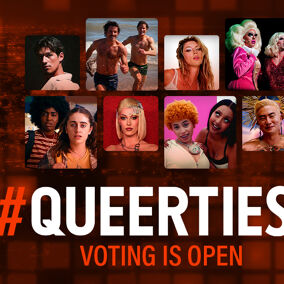
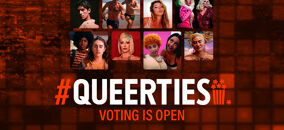














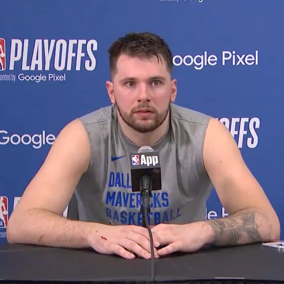
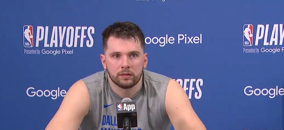
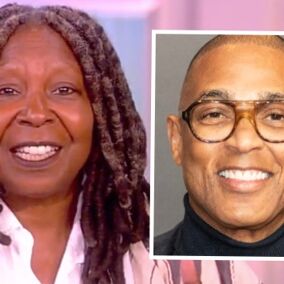
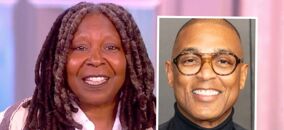
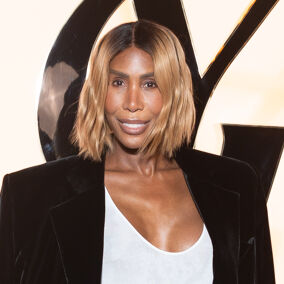
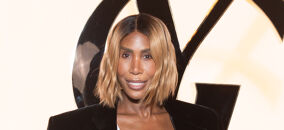
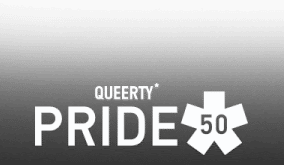

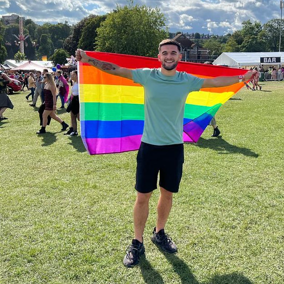

@HarryB
Very strange